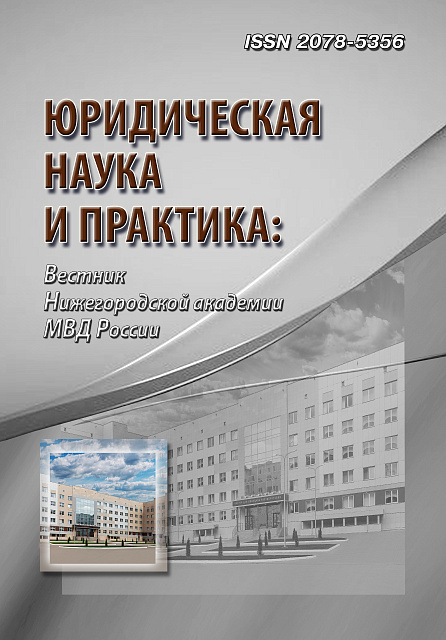Russian Federation
Russian Federation
UDC 34
The article analyzes the situation that has developed in modern science in connection with the competition of two theories explaining the formation of criminal procedural evidence. Analyzing advantages and disadvantages of these theories, the authors make a conclusion on reasonableness and value of the investigative approach of taking evidence. The principal argument in favor of this theory is the fact that gives a right explanation to the modern technology of criminal procedural proofs, established in the legislation of nowadays. And more importantly, this theory corresponds to the current state legal model of Russia as a sovereign, independent State. The leading positions of the analyzed theory are enumerated in the article. The investigator is the subject of the formation of evidence.Theinvestigative steps or other procedural activities carried out by the investigator in cooperation with other participants of the investigation are the way to form evidences. The content of investigative actions may be the results of searching activities. The process of forming evidence is completed at the stage of thepreliminary investigation. According to the authors’ opinion the drawing of the report of the investigative action is the final step of the formation of an usual investigative evidence. The authors of the article find possible reformation or disbanding of the investigative evidence as a result of influence of the arguments of the defense during the trial.
evidence formation , theory of criminal procedural evidence, investigative approach ,competing approach
1. Utkin V.V. Use of the results of search activities in court evidence in criminal cases. Dissertation... candidate of legal sciences. Nizhny Novgorod, 2020. (In Russ.)
2. Sheifer S.A. Prosecutorial and investigative power: essence and problems of mutual relations. Criminal proceedings: practical guide: in 3 vol. / ed. N.A. Kolokolov. Vol. 2. Moscow, 2016. (In Russ.)
3. Alexandrov A.S. Introduction to Forensic Linguistics: monograph. Nizhny Novgorod: Nizhny Novgorod Law Academy, 2003. 420 p. (In Russ.)
4. Rossinsky S.B. Collecting evidence as the “first” stage of proof in a criminal case. Legal Journal of Samara University, 2020, vol. 6, no. 3, pp. 91-103. (In Russ.)
5. Kukhta A.A. Proving the Truth in Criminal Procedure: monograph. Nizhny Novgorod: Nizhny Novgorod Academy of the Ministry of Internal Affairs of Russia, 2009. 569 p. (In Russ.)
6. Titaev K., Shklyaruk M. Russian investigator: vocation, profession, everyday life: monograph. Moscow: Norma Publ., 2016. (In Russ.)












